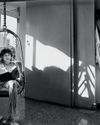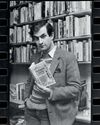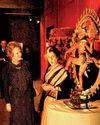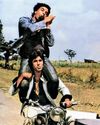The Supreme Court ruling on the Sabarimala temple casts a bright light on religious practices that diminish women. Six experts, scholars, activists and authors consider the vexed relationship between patriarchy, women, religion and the law

The Deepest Taboo
Flavia Agnes (Legal scholar and women’s rights lawyer)
Ending a centuries-old tradition, a five-judge constitutional bench, headed by Chief Justice of India Dipak Misra, on September 28 struck down the restriction on women in the 10-50 age group from entering the Lord Ayyappa temple at Sabarimala in Kerala. The court ruled that the provision in the Kerala Hindu Places of Public Worship (Authorisation of Entry) Rules, 1965, which laid down the restriction, violated the right of Hindu women to practise religion. While Justices R.F. Nariman and D.Y. Chandrachud gave separate judgments, which concurred with the views of the CJI and Justice A.M. Khanwilkar, Justice Indu Malhotra, the lone woman judge on the bench, gave a dissenting judgment.
The Kerala High Court had upheld the provision barring women from entering the shrine on grounds that only the presiding priest was empowered to decide on traditions. The Indian Young Lawyers Association and others challenged this ruling in the Supreme Court, arguing that the tradition was discriminatory and based on the concept of women’s menstrual impurity. Justice Chandrachud held that such a restriction on women amounts to a violation of their human dignity. It was the duty of the court to uphold the constitutional morality enshrined in the preamble of the constitution, which is based on equality, freedom and human dignity, and declared that barring women’s entry into the Sabarimala shrine is discriminatory.
This story is from the October 15, 2018 edition of India Today.
Start your 7-day Magzter GOLD free trial to access thousands of curated premium stories, and 9,000+ magazines and newspapers.
Already a subscriber ? Sign In
This story is from the October 15, 2018 edition of India Today.
Start your 7-day Magzter GOLD free trial to access thousands of curated premium stories, and 9,000+ magazines and newspapers.
Already a subscriber? Sign In

He gave the beat to the world
He would pick up the rhythms of each experience of mobility and weave them into his taals. Thus it was that he reflected joy and laughter in rhythmic cycles...such was the magic of Zakir's fingersText and photographs by Raghu Rai

KERALA TOURISM CAMPAIGN, 1989 - TICKETS TO PARADISE
All it took was a catchy tagline-'God's Own Country'-for the world to discover Kerala's wealth of natural beauty. It remains among the best tourism ad campaigns, earning the state a place among top 10 international destinations

SPIRITUALITY - THE GURUS OF COOL
Among the cult Indian gurus, no one had a bigger hold on western minds than 'Osho' Rajneesh. He's also perhaps the role model for the enterprise-building gurus of today

RETAIL SHOPPING - THE MALL MANIA
Shopping malls, a 1990s innovation in India, changed the way the Indian middle class shops. Their success now lies in being 'shoppertainment' destinations, offering something for everyone

CULINARY RENAISSANCE, 1978 - TANDOORI NIGHTS
ITC's Bukhara and Dum Pukht turned the world to tandoori cuisine and had an enormous impact on the F&B industry. Decades on, they are still a pit-stop for celebrities and heads of state visiting Delhi

INDIAN WRITING IN ENGLISH - REVENGE OF THE NATIVE
Rushdie lit the way but Indian writing in English has taken a life of its own in the past few decades, with translated Indian fiction most recently having its moment in the sun

INDIAN ART - A BRUSH WITH GOLD DUST
The 1990s economic liberalisation came as oxygen, lighting up the Indian art scene. Today, artworks by established masters routinely go for astronomical amounts

FESTIVAL OF INDIA, 1982 - CULTURE CAPITAL
The Festival of India grew into a symbol of our 'soft power', introducing our art and aesthetics to a global audience while also helping rebrand our domestic products

THE INDIPOP TREND - DISCO GOES DESI
For ages, the film song ruled. Nothing else was audible. Then came Nazia, charioteered by Biddu, and Indian ears went into a pleasant madness. Literally, Disco Deewane. A whole genre was born

SHOLAY 1975 - THE BIRTH OF THE FANDEMIC
India had seen hits before. But Sholay seared into its collective psyche like a badland bullet. The effect was on a scale never seen before- one film creating a new mass folk culture. And a trail of monster blockbusters that still continues